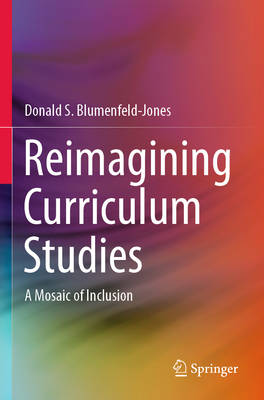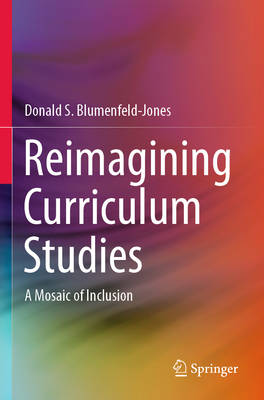
- Retrait gratuit dans votre magasin Club
- 7.000.000 titres dans notre catalogue
- Payer en toute sécurité
- Toujours un magasin près de chez vous
- Retrait gratuit dans votre magasin Club
- 7.000.0000 titres dans notre catalogue
- Payer en toute sécurité
- Toujours un magasin près de chez vous
Reimagining Curriculum Studies
A Mosaic of Inclusion
Donald S Blumenfeld-JonesDescription
This book addresses the crucial issue of how we value and deploy the idea of "freedom" that underlies contemporary curriculum studies. Whether we are conventional curriculum thinkers who value knowledge development or favor a Deweyan, individualist orientation toward curriculum or are a critical social justice curriculum thinker, at the heart of all these orientations and theorizing is the value of "freedom." The book addresses "freedom" through novel sources: the work of Martin Buber on education, Julia Kristeva on the uses of imagination and the female/male dialectic, Emmanuel Levinas' unique approach to ethics, and more. Readers will find new ways to understand freedom and the world of ethical life as informing curriculum thinking. It provides a more ecumenical vision that can draw our differences together. It helps readers to reconsider ourselves in fruitful ways that can bring more relevance and substance to the field.
Spécifications
Parties prenantes
- Auteur(s) :
- Editeur:
Contenu
- Nombre de pages :
- 237
- Langue:
- Anglais
Caractéristiques
- EAN:
- 9789811698798
- Date de parution :
- 15-04-23
- Format:
- Livre broché
- Format numérique:
- Trade paperback (VS)
- Dimensions :
- 156 mm x 234 mm
- Poids :
- 362 g

Les avis
Nous publions uniquement les avis qui respectent les conditions requises. Consultez nos conditions pour les avis.






